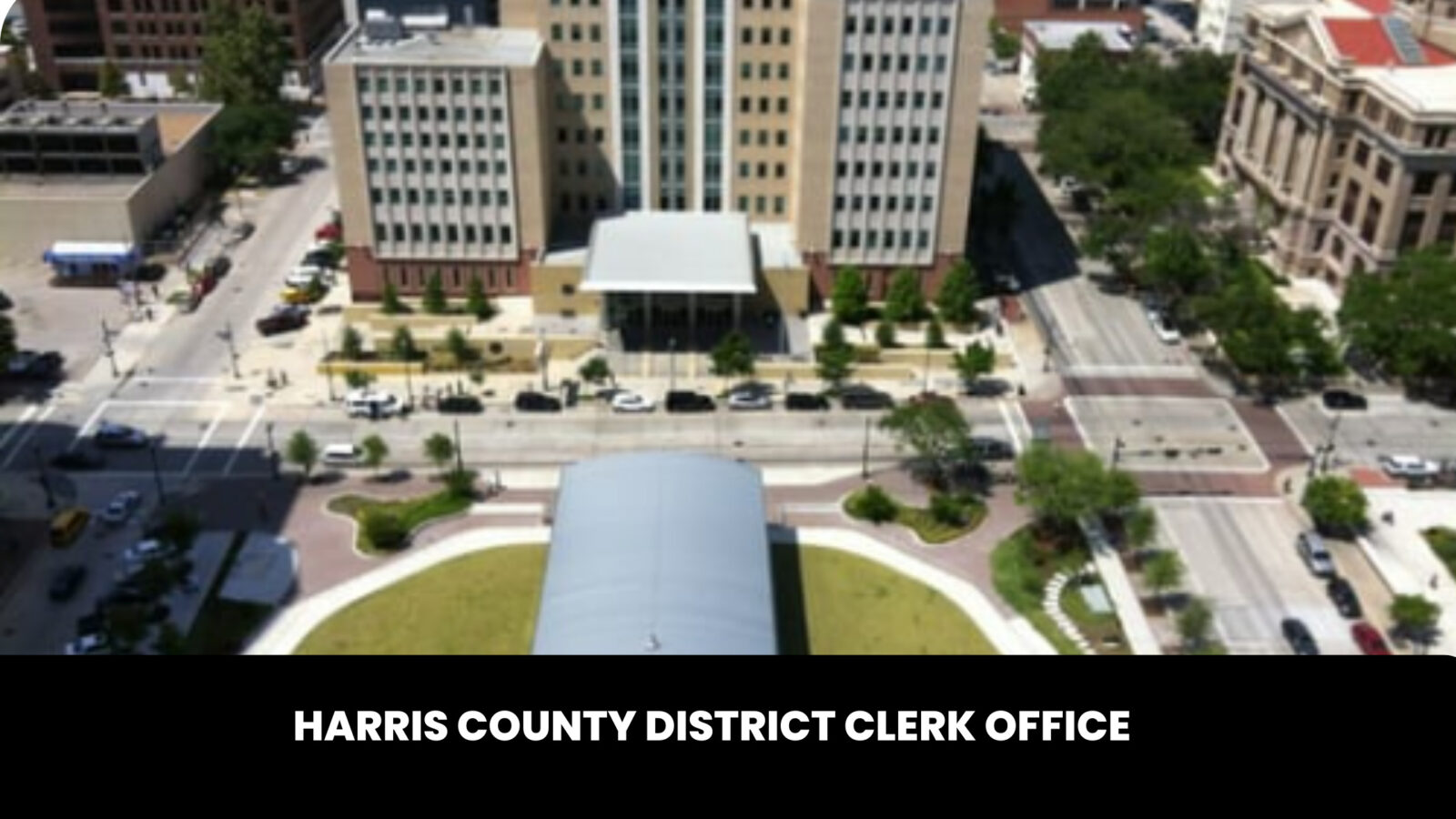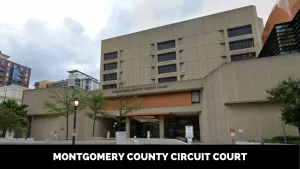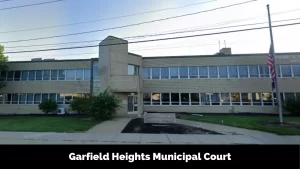Harris County District Clerk Office
The Harris County District Clerk is a key county government office that provides essential services for the district and county courts in Harris County, Texas. As the custodian of court records, the district clerk handles the filing and management of court documents, provides public access to judicial records, and collects court fees and fines. The office has undergone major changes in recent years, particularly in transitioning to electronic filing and implementing online services. With over 4.7 million new cases filed annually, the Harris County District Clerk’s office serves one of the busiest court systems in the country.
Overview of the Harris County District Clerk’s Office
Responsibilities and services
The Harris County District Clerk is responsible for managing the records for Texas’ largest trial court system. The office provides core services such as receiving and processing filings for new legal cases, maintaining and providing certified copies of court records, collecting legal fees, issuing subpoenas and summons, processing passport applications, and providing courtroom support. Their duties uphold the integrity of the court system and provide essential information services to legal professionals and the public.
Organization and staff
Headed by the elected Harris County District Clerk, the office has an annual budget of over $63 million and employs over 750 people. There are civil, criminal, family, and appellate divisions as well as specialty services for passports, records management, and more. There are also branch locations in each of the county’s courthouses for added convenience. The office processes filings 24/7 so staff are utilized around the clock.
Records and documents
The district clerk is responsible for maintaining both current and archived court records for criminal cases, civil lawsuits, family court, probate cases, and appeals. This includes documents like motions, judgements, exhibits, and decrees. They also track the status and outcomes of cases. Their records date back to the 1800s. These documents can be accessed on-site as well as ordered for certified printed or electronic copies.
Key Functions of the District Clerk
Filing and managing court records
One of their most vital roles is overseeing the filing of new cases and documents for existing cases. They receive filings in-person, by mail, by fax, and electronically. The office then processes, indexes, and stores these court records while managing deadlines, hearing schedules and other critical dates. They also review filed documents to collect associated fees and handle paperwork from the court like subpoenas and summons.
Collecting fees and fines
The Harris County District Clerk collects legal fees and fines associated with court filings and proceedings. Fees are charged for filing lawsuits, probate cases, record searches, and obtaining copies of documents. The clerk also collects court-ordered fines for misdemeanor and felony criminal cases. These monies are then processed and turned over to the proper county, state, and federal accounts.
Issuing subpoenas
Court orders for subpoenas originate from the District Clerk’s office who then prepares and issues them. Subpoenas serve to compel participation or production of documents for a legal proceeding. The clerk provides subpoenas for civil, family, and criminal cases in Harris County district and county-level courts. Attorneys also request blank subpoenas from the District Clerk to serve witnesses or defendants.
Providing access to public records
An important aspect is providing prompt access to court records for legal professionals, government agencies, and the general public. The district clerk facilitates examining public documents at their office as well as through requesting records by phone, fax, mail, or electronically. They also quickly process requests for certified copies.
Electronic Filing and Online Access
eFiling system
A major initiative was the transition to electronic filing (eFiling) system for attorneys starting in 2015. This allows legal professionals to submit case filings entirely online efficiently and securely while providing 24/7 access. The eFiling portal has steadily reduced paperwork, improved courthouse workflows, and cut costs. Over 2.5 million documents are now eFiled each year.
Online public records access
In recent years, the clerk’s office has focused on improving their website and expanding online services to the public. People can now conveniently request certified copies of birth, death, marriage or divorce certificates online along with deeds, court documents, assumed name certificates, and more. Their online case records also provide quick access to filed court documents and case status information.
Notable Initiatives and Changes
Transition to eFiling
The Harris County District Clerk was one of the first offices nationwide to implement the Tyler Technologies eFiling platform. This massive shift to electronic document filing aimed to improve efficiency, cut waste, and increase accuracy. The transition mandated eFiling for attorneys in 2015 before expanding to include all legal professionals by 2017. This change modernized their operations.
COVID-19 response
The clerk quickly adapted during the COVID-19 pandemic to maintain operations remotely including temporarily suspending certain in-person services. Their centralized law library proved essential for providing virtual access to legal information. The office also installed plexiglass barriers, provided personal protective equipment, and modified workspaces for employee and visitor safety during the crisis.
New county clerk website
In 2022, the Harris County District Clerk unveiled a brand new website to improve their digital services. The updated site offers greater access to legal records, forms, and information for legal professionals as well as the public. Enhanced search capabilities, mobile-friendly design, and increased payment options were key goals. The new website also reflects their gradual rebranding.
Looking Ahead
Continued digitization
While the Harris County District Clerk has made enormous strides in eFiling and online records, continued expansion of digital access remains a priority. There are opportunities to further modernize document management and digitize more of their historical records. Exploring tools like machine learning and AI could also improve workflows. Updates to their data management systems and interfaces are likely.
Improved online services
Increasing their services available online for legal professionals and the public continues to be a focus. Additions like online registration and fee payments for court-ordered classes, expanded case tracking options, digital court date reminders, and greater integration with the county court system could be on the horizon. Streamlining online records requests is also a constant objective.
Focus on customer service
Even with evolving technology, the District Clerk’s office aims to maintain a courteous, customer-focused approach while handling high case volumes. Steps to speed up clerk review times for filings, shorten in-person wait times, and implement customer service training for staff could come next. As a public entity, enhancing their customer service ethic ultimately gives citizens and legal professionals greater access to justice.
Conclusion
The Harris County District Clerk is critical to upholding justice and providing essential court services as the official custodian of records for the county’s massive court system. They handle intricate legal processes, heavy caseloads, and critical records maintenance while striving to incorporate technological upgrades like eFiling and digital access. Whether adapting to major crises or rolling out innovative initiatives, this office continues evolving to better serve Harris County courts and residents. Looking ahead, the district clerk remains committed to leveraging technology to improve efficiency, transparency, and their delivery of justice.
FAQs
How can I access public court records through the Harris County District Clerk?
You can search for and view public records through the district clerk website. Certified copies can also be requested online or by phone, email, fax, or mail. For in-person access, visit their office at 201 Caroline St, Houston, TX 77002.
What methods of payment does the district clerk accept?
The office accepts payment online by credit/debit card or eCheck. They also take cash, checks, money orders or cashier’s checks by mail or in-person. Attorney eFiling accounts can be set up for direct billing.
How can I conduct eFiling with the district clerk?
Attorneys and legal professionals registered with the county eFiling system can submit documents electronically through Tyler Technologies’ Odyssey File & Serve website. User guides and login instructions are available on the clerk website.
What records does the district clerk’s office maintain?
They maintain both current and archived records for criminal, civil, family, probate, and appellate cases including filed documents, court orders, judgements and decrees. They also issue official court orders and subpoenas.
How can I run a search for court records?
Users can search for civil, criminal, family, and probate cases through the public records search on their website. Searches can be filtered by party name, case number, date range, court type, and more.






